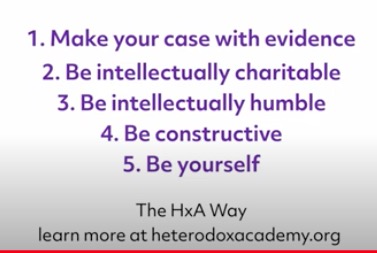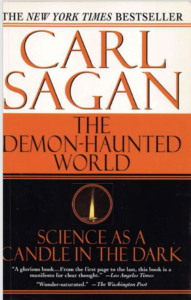Attorney Greg Lukianoff of FIRE (Foundation For Individual Rights in Education) has written a detailed legal analysis regarding a disturbing and divisive method of "teaching race" in the classroom (which many have referred to as "Critical Race Theory") (and see here and here). This trend in the classroom is divisive because many teachers think it's a good idea to categorize there students as "colors" and to divide them into these "colors," sometimes physically. It disturbing because the main job as a teacher is to teach students how to think, not what to think. The title of his article is "13 important points in the campus & K-12 ‘critical race theory’ debate." Below, I've included an excerpt from Point 8 of Lukianoff's 13 points:
Each side’s distorted impression of the goals of the other side, and of what’s actually in the bills, has been an unfortunate side effect of the media coverage. Those listening to left-leaning outlets and pundits could be forgiven for thinking that the bills outright ban discussion of slavery. Those listening to right-leaning outlets and pundits could be forgiven for having no idea of the breadth and vagueness of a lot of the clauses in these bills, and the chilling effect they may create with teachers making good faith attempts to comply. The media coverage of these bills has been largely lacking in deep-dives into the actual text of the bills, instead relying on broad characterizations of their intent and the motivations behind those introducing them.
As I’ve already gone into many of the good points made by the critics of these bills, I would like to pay some attention to the valid concerns that the bills were meant to address. With the exception of the vague kinds of clauses mentioned above, most of what these bills prohibit are speech or patterns of behavior by teachers that even many of the critics of these bills would find problematic, and arguably would already run afoul of laws prohibiting racial discrimination and harassment. For example, North Carolina’s HB 324, mentioned above, prohibits public K-12 schools from “promoting” the following concepts:
(1) One race or sex is inherently superior to another race or sex.
(2) An individual, solely by virtue of his or her race or sex, is inherently racist, sexist, or oppressive, whether consciously or unconsciously.
(3) An individual should be discriminated against or receive adverse treatment solely or partly because of his or her race or sex.
(4) An individual’s moral character is necessarily determined by his or her race or sex.
(5) An individual, solely by virtue of his or her race or sex, bears responsibility for actions committed in the past by other members of the same race or sex.
(6) Any individual, solely by virtue of his or her race or sex, should feel discomfort, guilt, anguish, or any other form of psychological distress. […]
These bills are a reaction to legitimately concerning documented cases of K-12 students being singled out due to their race and made to participate in exercises that are, arguably, racially discriminatory. I was disturbed to read some of the examples in my co-author — and FIRE colleague — Bonnie Snyder’s forthcoming book Undoctrinate: How Politicized Classrooms Harm Kids and Ruin Our Schools—And What We Can Do About It, such as:
A biracial high school student in Las Vegas was allegedly singled out in class for his appearance and called derogatory names by his teacher. In a lawsuit, the student’s family alleges he was labelled an oppressor, told denying that status was “internalized privilege,” and told he needed to “unlearn” the Judeo-Christian principles imparted by his mother. When he refused to complete certain “identity confession” assignments, the lawsuit claims, the school gave him a failing grade. He has had to attend counseling.
Third grade students in California were forced to analyze their racial and other “identities,” rank themselves according to their supposed “power and privilege,” and were informed that those in the “dominant” culture categories created and continue to maintain this culture to uphold power.
Parents in North Carolina allege that middle school students were forced to stand up in class and apologize to other students for their “privilege.”
Buffalo public schools teach students that all white people perpetuate systemic racism and are guilty of implicit racial bias.
Elementary children at the Fieldston School in Manhattan were sorted by race for mandatory classroom exercises.
A head teacher in Manhattan was caught on tape acknowledging that the curriculum at his school teaches white students that they’re inherently “evil” and saying, “we’re demonizing white people for being born.”
While there is some debate to be had over how widespread the phenomenon is, some students are being made to feel, in class, that their mere existence is problematic and requires an apology or explanation. These bills, wise or not, are intended to address this problem. If your argument against these bills is that they’re much ado about nothing, or a solution in search of a problem, I think you should look deeper and think more critically about what proponents of these laws are worried about.


 programming, credulous presentations on pseudoscience and superstition, but especially a kind of celebration of ignorance. As I write, the number-one videocassette rental in America is the movie Dumb and Dumber. “Beavis and Butthead” remain popular (and influential) with young TV viewers. The plain lesson is that study and learning—not just of science, but of anything—are avoidable, even undesirable.
programming, credulous presentations on pseudoscience and superstition, but especially a kind of celebration of ignorance. As I write, the number-one videocassette rental in America is the movie Dumb and Dumber. “Beavis and Butthead” remain popular (and influential) with young TV viewers. The plain lesson is that study and learning—not just of science, but of anything—are avoidable, even undesirable.